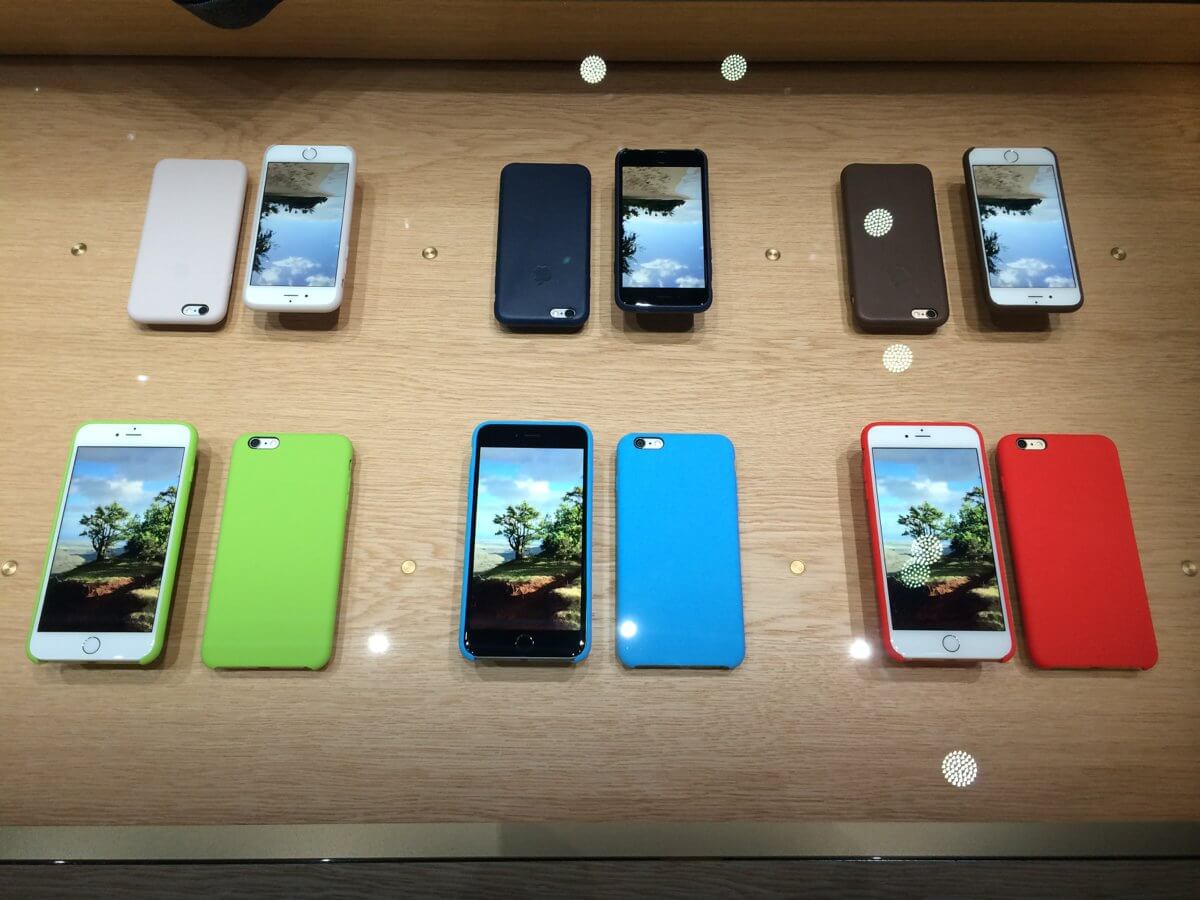
 Steve Kovach/Business Insider
Steve Kovach/Business InsiderWhen Apple unveils its next iPhone, there’s one area that’s expected to get a significant change — its screen.
Analysts and industry watchers expect the iPhone 6S will add Force Touch, which would let users press the screen like a button, to deliver a different command than simply touching the screen.
Apple hasn’t confirmed this, but analysts that monitor the company’s supply chain regularly and reporters with excellent track records have all said they’ve seen evidence that Force Touch is coming to the iPhone.
Force Touch is a new feature Apple has added to some of its most recent products, such as the Apple Watch, new MacBook, and new MacBook Pro models.
For example, you can press down on the Apple Watch’s screen to change its watch face. Or, applying slight pressure to the new MacBook’s track pad allows you to quickly perform certain functions — such as adding an event to a calendar or previewing a link in Safari.
Force Touch could fundamentally change Apple’s most important product. Like Touch ID changed how we unlock our iPhones and pay for apps, Force Touch could make it a lot easier to zip around iOS.
That’s why some developers are already thinking about how Force Touch could be used to improve their apps, even though Apple hasn’t announced its new iPhone yet. Here are the biggest things we learned from chatting with app creators about how they view Force Touch.
It could be really useful for sketching and photography apps
A feature such as Force Touch could make it easier to access things like submenus within apps without distracting you from what you’re doing within the app, said Cole Rise, creator of the popular iPhone photography app Litely.
“I’ve definitely been thinking a lot about it in terms of its capabilities,” Rise said to Business Insider. “Say, if you wanted to change the color of something, you could Force Touch and it would change that.”
Force Touch allows you to access various options and shortcuts on the Mac today, but Rise has already started imaging the simplicity it could bring to his app beyond this.
“I think [of] Force Touch as a before and after,” he said. “We have this awesome before and after thing where we have to use two fingers, and people don’t necessarily know how to do that without reading the instructions. “[You place] two fingers on the screen to see how your picture changes. Force Touch may be a really good way to alleviate that.”
Matt Ronge, the creator of Astropad — an app that lets artists and photographers use their iPad to markup projects on their Mac — is also thinking about how Force Touch could benefit the iPhone version of his app coming later this month.
“We really want to take advantage of the variations in pressure,” he said. “Let’s say you’re doing some masking or you need to work on a background. Just using your finger you can get some pressure sensitivity.”
Force Touch could be huge for gaming
Gaming is another area that could benefit from Force Touch.
Paul Murphy, the CEO of Playdots, the company behind the successful games Dots and Two Dots, said additions like this provide inspiration for new gameplay mechanics in his apps.
“When we add a new game mechanic, it might just look like another 50 levels, but it’s like a completely new game,” he said. “The effort in creating the mechanic is like creating a new game.”
Murphy said that whenever there’s a big hardware or software change to the iPhone, his team is thinking about how it can shape future games. He said his team is currently working on new mechanics, but didn’t mention any specific plans for Force Touch.
He did, however, cite the Lotus visual effect that appeared in newer, recently introduced Dots levels as an example of how the team changes gameplay with new mechanics.
“When the Lotus dot touches the board, it transforms the other dots adjacent to it, so the things that are coming out are new bits of content like that,” he said.
 Apple
Apple
It will probably provide some useful shortcuts
Rise pointed out another potential use case for Force Touch: Rather than shaking your phone to undo an action, such as typing in a text message, Force Touch could provide an easier way to backtrack.
“I think Force Touch is a bit more conducive, and it’s better for the user,” he said.
Erez Pilosof, who created the email-messenger app Hop, said he’s planning to use Force Touch as an alternative to the long-press gesture.
“Both will trigger the same action, but if you Force Touch it will be a few milliseconds faster,” he said in an email to Business Insider. “So basically I believe Force Touch will be the equivalent of a right mouse click.”
But it will have to be really simple in order to catch on, and some developers are still skeptical
Force Touch will only add value to the iPhone if it’s implemented in a way that makes sense and is easy to figure out, according to Rise. This will likely impact whether developers decide to integrate it into their apps.
“If Force Touch isn’t very discoverable, if people don’t think to do it automatically, then it’s something we won’t rely heavily on,” he said.
But it’s also up to developers to make sure they’re tying it into their apps in a way that makes sense.
“Say, if you hide the submenu for a very important feature, like adding a photo, under Force Touch and people don’t see a button, that might be hard to use,” Rise said.
Not all app creators are convinced that Force Touch would be necessary for their apps if it does debut on the next iPhone. Asher Vollmer, who made the popular game Threes, said he thinks most of his users will still be operating on older iPhones without Force Touch.
“I think it’s just too early to see what the potential is or if people even like it,” Vollmer said to Business Insider. “I have a hunch that people will sort of play with it but not make it part of any major interaction in their apps.”



